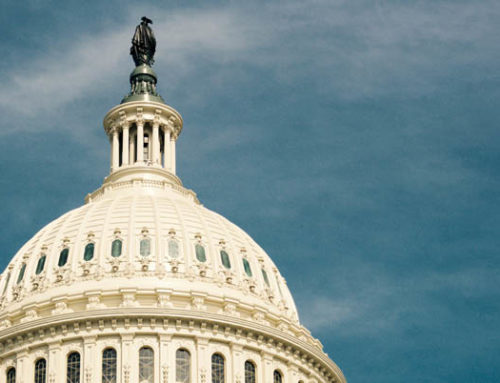Today marked the start of the 84th Regular Session of the Texas Legislature, which will deliberate over the next 140 days and nights during their biennial gathering. Following all the attendant pomp and circumstance that usually accompanies the start of the session, the House in its first real order of business, overwhelmingly selected incumbent Speaker Joe Straus to serve a fourth term by a vote of 127 to 19, defeating the tea party-backed challenger, second-term State Representative Scott Turner (R-Frisco).
What follows is a few key takeaways from the House and Senate that will give you some context to better understand the current political climate and gain some additional perspective on how the 84th Regular Session might shape up over the course of the next several weeks.
KEY TAKEAWAYS
- San Antonio Republican, Joe Straus was again overwhelmingly selected today, by a rare record vote, to serve as the presiding officer of the Texas House of Representatives. He was officially sworn in and joined by Governor-Elect Abbott and Lt. Governor-Elect Patrick. Subject to the results of two House run-off elections (HD 117 and HD 123), Speaker Straus will preside over a Texas House that will have an estimated 98 Republicans, 51 Democrats, up 3 Republicans from the 2013 Session. Overall, the House will have approximately 27 new members in the Texas House, with 63 House members having one session of experience or less.
- After being sworn in, Speaker Straus emphasized that the House would not be limited by ideology. He also provided some brief remarks, touching on the need to address school finance, ending highway diversions, continuing work on water resources, adhering to fiscal discipline, while providing meaningful tax relief, reforming the state’s economic development programs, and developing initiatives to prevent abuses of state contracts.
- In the Senate, former Lt. Governor Dewhurst performed one of his last official acts, presiding over today’s Texas Senate, in a largely ceremonial meeting, including several complimentary speeches from Senators and passage of a resolution honoring Governor Dewhurst for his service (SR2). Dewhurst provided departing remarks. Subject to one pending Senate run-off, there are expected to be 20 Republicans and 11 Democrats in the new Texas Senate, meaning Republicans are one vote shy of attaining the current two-thirds vote floor requirement.
- In other Senate action, State Senator Juan “Chuy” Hinojosa was sworn in as president pro tempore. The president pro tempore serves as lieutenant governor and presides over the Senate in the absence of the Lieutenant Governor.
- The Senate will operate in full, once Lt. Governor Elect Patrick takes office, January 20, 2015.
- Another key takeaway happened yesterday, when Texas Comptroller Glenn Hegar reported that lawmakers will have $113 billion in state revenue to work with as they set spending for the 2016-17 budget period, including $7.5 billion left over from the current budget. Deducted from that total will be about $5 billion set aside for transfers to the Rainy Day Fund and State Highway Fund. The Comptroller’s forecast was better than some experts had expected, but it still complicates the pursuit of broad and substantial tax cuts as the amount is also subject to the state spending limits. The budget will continue to be a significant factor throughout the session, shaping a huge number of issues, including those that the Speaker touched on during his acceptance remarks.
WHAT TO LOOK FOR NEXT
- The Senate recessed till Thursday, January 15 and will hold a joint session with the House. On conclusion of Thursday’s Joint Session, the Senate will adjourn until Tuesday, January 20, 2015.
- After Lt. Governor Elect Patrick is sworn in on January 20, the Senate will begin discussion and vote on the rules that will govern their actions and determine how legislation will be handled during committee and floor action for the next two years. Despite the large Republican majority, it is widely believed that the Senate will consider possible modifications to the 2/3rds rule, something that we will watch intently. For decades, the 2/3rds rule has defined the number of votes required for a bill to be eligible for consideration on the floor. Rumors of modifying the 2/3rds rule range from no change to three-fifths or 60%. Shortly after adoption of the Rules, Lt. Gov. Patrick is widely expected to move quickly on committee assignments, relative to the pace of assignments from previous administrations. One thing for certain, is that Senate rules debate and committee assignments will shape the tone and tenor of how legislation is handled in the Senate and provide important clues as to how Lt. Governor Patrick will govern.
- The House will meet tomorrow, January 14, for a new member training session and to address administrative matters, including continuing to pay existing committee staff. The rules debate will proceed any announcement on committee assignments. Historically, the House has waited until late January or early February to announce committee appointments.
CONCLUSION
With so many new faces and a wholesale change in all of the statewide offices, the 84th Regular Session sets up as somewhat of a puzzle. It seems safe to expect a more conservative perspective on how policy issues are viewed and debated. The spirited and lopsided Speaker vote is a good indication that the any remaining internal GOP conflict within the House will cease anytime soon. The state’s solid financial condition will also serve to heighten the discussion of priorities. The true impact of how these conditions impact our issues remains to be seen. Based on today’s comments and those leading up to the opening ceremonies, issues such as lowering property taxes, securing the border, reforming the state’s economic development incentive programs, ending transportation diversions, improving state contracting and addressing school finance, will receive considerable attention from leadership. Should you have any questions or require further information, please do not hesitate to let us know.
Below is the final tally of how each member of the House voted, with the no votes, bolded and in pink. When the Speaker issues committee assignments sometime in late January or early February, it will be interesting to see how those who voted against the Speaker or were absent, fare in their appointments.
TEXAS HOUSE OF REPRESENTATIVES SPEAKER VOTE
January 13, 2015
|
|





